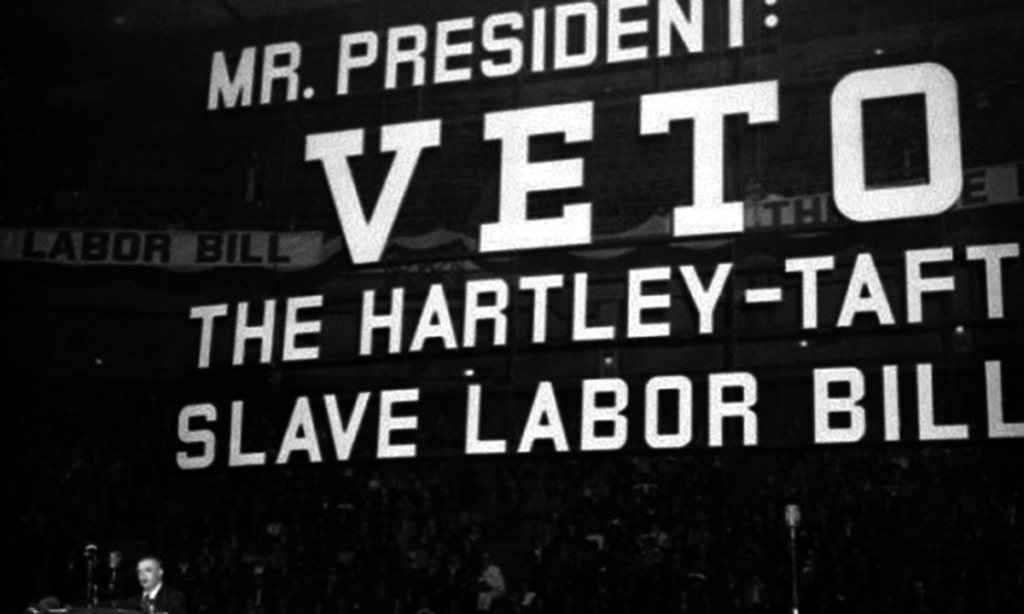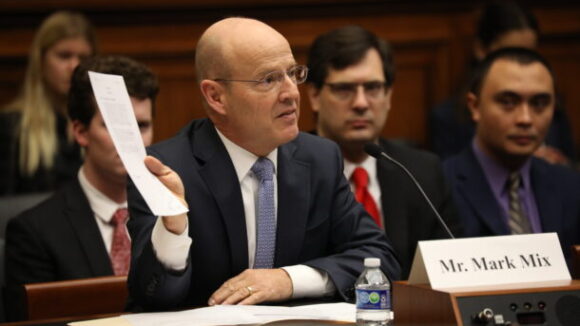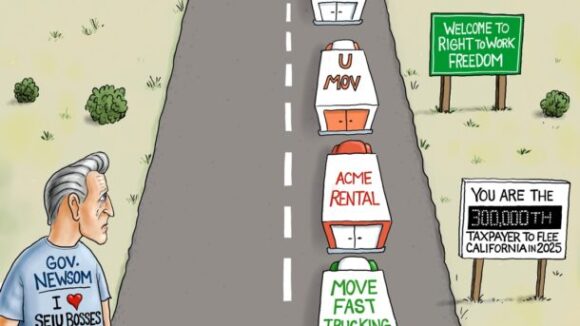Committee President's Statement on Senate 'Labor Law Reform' Hearing
On Wednesday, October 8th at 10:00 AM ET, the Senate Health, Education, Labor, and Pensions (HELP) Committee will hold a…

National Labor Relations Act (NLRA): In 1935, the Federal government forced all states to allow unions to compel employees in the private sector to join and pay union dues or lose their jobs.
Rather than eliminate the NLRA, Congress chose to try to make a bad law better. In 1947 after overriding President Truman’s veto, Congress enacted legislation known as the Taft-Hartley Act. Instead of abolishing the NLRA forced dues sections, Congress added Section 14(b), Right to Work, to provide an “escape hatch” from federally-imposed forced dues authorizations.
Section 14(b) created a federal affirmation that states and territories may enact Right to Work laws and block the NLRA’s federal imposition of forced dues. Under Section 14(b), state Right to Work laws effectively prohibit union officials in most private sector industries from requiring workers to pay union dues or fees in order to get or keep a job.
Eighteen quickly enacted Right to Work laws by 1955.
Contact Congress Today. Tell Them to Sponsor the National Right to Work Act to free every state from Congressionally imposed forced-unionism.

On Wednesday, October 8th at 10:00 AM ET, the Senate Health, Education, Labor, and Pensions (HELP) Committee will hold a…

Committee President: Union Violence is an Ongoing Problem Washington, D.C. (September 8, 2025) – The National Right to Work Committee commended Pennsylvania Congressman…

“Both because of their substantial net taxpayer losses due to domestic migration, and because the taxpayers they gained reported $13,469 less income apiece than the taxpayers they lost, forced-unionism states lost a total of $65.7 billion in AGI in 2021 alone.”